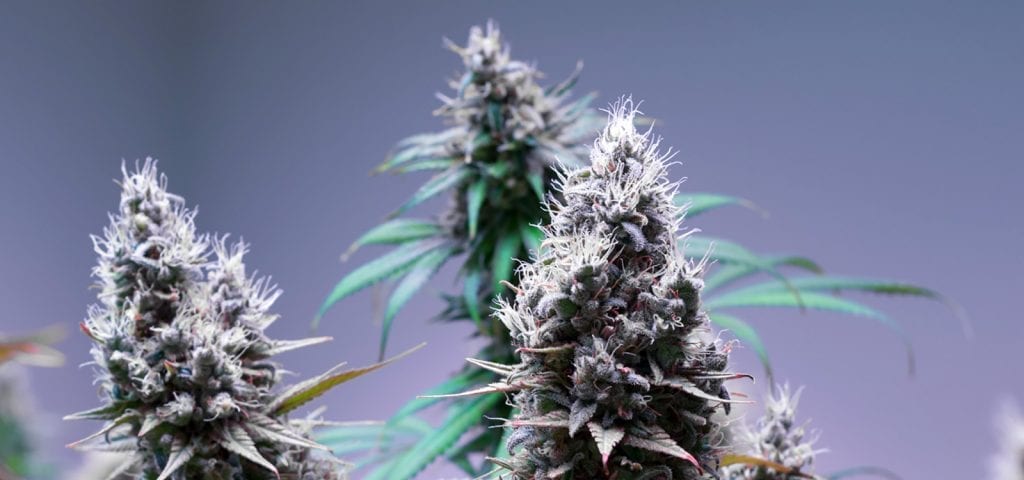Editor’s note: This is the final installment of a three-part series about cannabis taxes and the intricacies/pitfalls of staying tax compliant in the marijuana industry. If you haven’t yet, check out Part 1 and Part 2 to get the full scoop.
Let’s take a moment to examine the “logic” of the Federal Government. We have a business that is legal in some states but has a history of being federally prohibited. As a result, cannabis retailers must conduct all their transactions in cash, which only makes them juicier targets for thieves and criminals — and furthers the potential for cannabis-related crimes.
The Feds, in their refusal to allow cannabis industries to use the Federal Banking System, have created a safety hazard for the owners and workers of cannabis dispensaries everywhere.
In this final part of my series, I am going to lay out some basic strategies and other ideas for operating within the realm of an all-cash business.
IRS audits in a cash-based industry
Cannabis certainly isn’t the only industry where cash is the main source of income — for instance, topless bars generally handle a lot of cash. To put a myth out there to rest, the IRS can actually trace cash. How, you ask? Let’s say that you are paid in all cash and you report $25,000 of income on your tax return. On that same tax return, you report that you paid $15,000 in mortgage interest and $3,000 in property taxes.
How did you eat? Unless you have some source of untaxable income, the IRS will indeed question the return.
The IRS will reconstruct your income. One method they use is a cash flow analysis. What they will do is ask you questions about your lifestyle. How much is your rent? What do your groceries cost? How much do you spend on clothing and utilities? You get the picture. They will multiply that out by the number of months in the year, and that is your income.
This method has been backed up by the United States Tax Court, but there are other methods that they can use as well.
Point of sale and other useful tools
If you are in the cannabis industry, you must keep track of your sales. This is done with a point of sale (POS) system, which tracks sales and inventory and enables you to run a daily Z-Tape that tells you what your sales were, how much tax you collected, how much cash should be in the drawer, and other information. A POS system is necessary to stay in compliance with the state tax regulations and also allows you to track your inventory so you know what to order and what your best-selling product is.
Dispensaries need to take precautions by systematically removing some cash from the cash register and placing it in a safe. This should be done periodically throughout the day. Other security measures available to you include installing security cameras, and some dispensaries have even gone so far as to have armed security on site.
Then there is theft. I can’t tell you how many times my practice is called into a business to audit cash. Employees steal. Counting a drawer before and after an employee’s shift is essential. Having only one person per register at a time is the best way to handle this, because if that drawer is short, then you have one person to go to. Note that humans do make mistakes. If the drawer is over or short by $20, that is normal. Discrepancies in the hundreds of dollars however, signifies theft. Not only do you have to worry about the theft of cash, but you also have the vexing problem of the potential loss of cannabis. Alarm systems that are set off by magnetic strips attached to the cannabis packaging can act as a deterrent to this kind of theft. Properly setting up your dispensary is key to minimizing this problem.
Electronic money solutions
Banks won’t touch cannabis money, but some dispensaries are turning to Bitcoin, which is a kind of digital currency that uses encryption techniques to regulate the generation of currency units. This cryptocurrency technology verifies the transfer of funds completely outside of the central bank’s domain. Dispensaries can take Bitcoin as payment, and make payments with the cryptocurrency.
While Bitcoin can now be used and traded digitally in a similar way to more conventional forms of currency like euros or dollars, the main feature that sets it apart from standard currencies is the lack of centralization. There is no single authority controlling cryptocurrencies like Bitcoin, and some people are more comfortable with this type of money.
Bitcoin’s transactions are processed through a network of machines and their underlying transactions; again, there is no central regulatory agency involved. Theoretically, the system cannot be rigged to support any one monetary policy, such as what happened in Cyprus several years back. Even if one part of the network is offline, the currency still flows.
In summary, it is decentralized, meaning the Feds don’t control it.
There are literally thousands of different cryptocurrencies out there, Bitcoin just happens to be the most popular. At one point in my career, I was tax consultant for the biggest cryptocurrency limited partnership at the time in the United States. What they did was mine cryptocurrency; they would exchange dollars or euros for Bitcoin, then exchange Bitcoin for Fatcom, and then Fatcom for BlackCoin. They made money via the exchange rate between the different cryptocurrencies — a strategy that could potentially open up a passive income stream for a struggling cannabis company.
